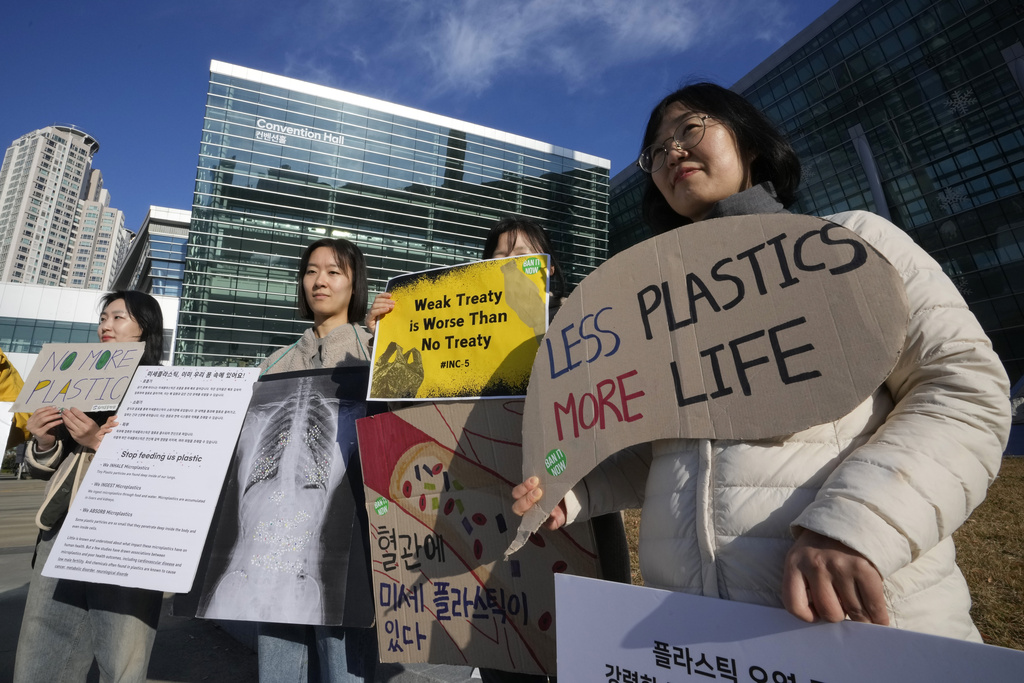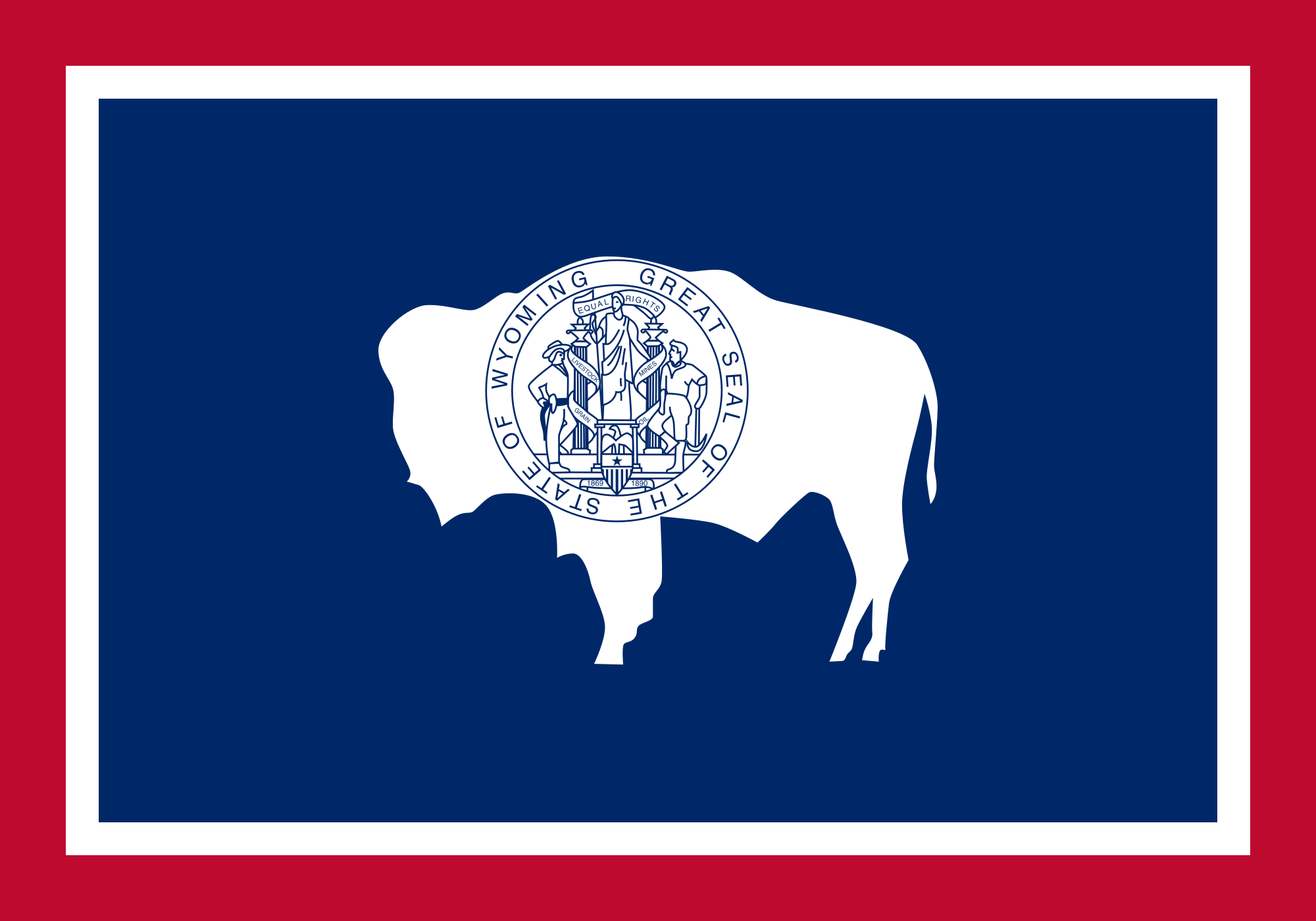What to know about the plastic pollution treaty talks that have concluded in South Korea
By AP
December 2, 2024

South Korean environment activists protest calling for a strong global plastics treaty outside of the venue for the fifth session of the Intergovernmental Negotiating Committee on Plastic Pollution in Busan, South Korea, Sunday, Dec. 1, 2024. (AP Photo/Ahn Young-joon)
By JENNIFER McDERMOTT Associated Press
BUSAN, South Korea (AP) — Negotiations on a treaty to end plastic pollution have concluded in Busan, South Korea without reaching an agreement.
This was supposed to be the fifth and final round to produce the first legally binding treaty on plastics pollution, including in the oceans, by the end of 2024.
Here’s what to know about the talks:
Nations will meet again next year to finish negotiating
After a week of talks and with time running out early Monday, negotiators agreed to meet again next year. They don’t yet have firm plans.
This has been the largest session with more than 3,300 participants at the Intergovernmental Negotiating Committee on Plastic Pollution, including delegates from over 170 countries and representatives of nearly 450 organizations.
“We have tested the resilience of our planet to its limit,” INC Executive Secretary Jyoti Mathur-Filipp said as the meeting closed. “Now is the time for us to push our own limits and honor the trust placed in us.”
More countries said they want to address the total plastic on Earth
The most contentious issue of the talks has been whether there will be a limit on the amount of plastic that companies are allowed to produce. Panama proposed text for the treaty to address plastic production and support for it quickly grew to over 100 countries.
It was a compromise to build consensus because it did not include a numerical target or production cap. Instead, it proposed that countries would adopt a global target at a later conference of the parties meeting.
Juan Carlos Monterrey, the head of Panama’s delegation, said Monday that the nations standing up for a strong treaty may have been delayed, but they will not be stopped.
Their ambition prevailed at these negotiations because they banded together, said Ana Rocha, who leads international plastic policy work at the Global Alliance for Incinerator Alternatives.
“This one was a moment that these countries were able to stand and say, ‘No, we are not going to take it this way. We are going to fight,'” she said after the meeting adjourned.
Environmental groups and Indigenous leaders felt silenced
Most of the negotiations in Busan took place behind closed doors, leaving few opportunities for any observers to help shape the treaty.
The International Indigenous Peoples Forum on Plastics said as the session closed that they were profoundly disappointed with how the process unfolded, and condemned the draft of the global treaty for excluding Indigenous voices and failing to uphold their rights.
Many think negotiators will agree on a treaty at the next meeting
U.N. Environment Program Executive Director Inger Andersen said she has not heard a single delegate say they would not want this treaty.
“We may close this session today but the world will still be watching tomorrow,” she said in her closing remarks. “And the plastic pollution will still be arriving on our shores, and so our work will continue.”
Sivendra Michael, Fiji’s secretary for the environment and climate change, said they must not hesitate — they can develop a treaty that becomes a lasting legacy, demonstrating their resilience and commitment to the planet and future generations.
___
The Associated Press’ climate and environmental coverage receives financial support from multiple private foundations. AP is solely responsible for all content. Find AP’s standards for working with philanthropies, a list of supporters and funded coverage areas at AP.org.

